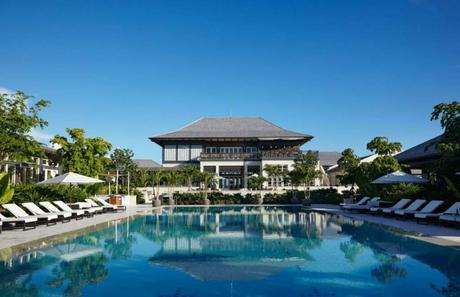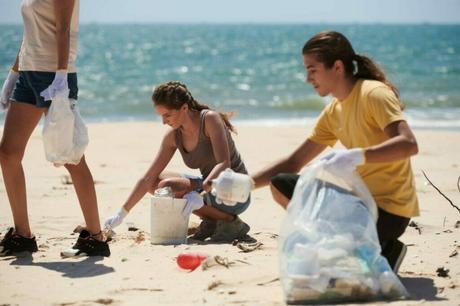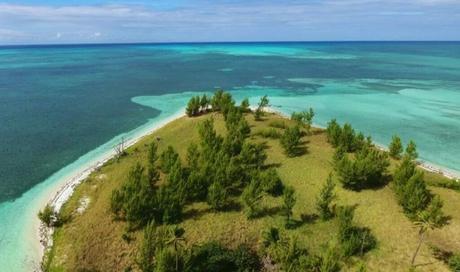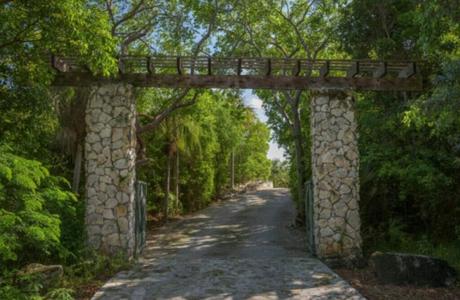Discover the breathtaking beauty of the Bahamas while leaving a positive impact on the environment through sustainable travel options. This article explores ecotourism and highlights the Bahamas’ beautiful landscapes, abundant marine life, and cultural riches, which make it a popular vacation spot for those who care about the environment.
From exploring lush national parks to participating in community-led conservation projects, join us as we unveil the diverse range of sustainable experiences that await you in this Caribbean paradise. Embark on a journey that not only satisfies your wanderlust but also contributes to the preservation of this stunning island nation for generations to come.
Eco-friendly Accommodation

When planning your Bahamas eco-tourism adventure, one of the first considerations is finding eco-friendly accommodation. Thankfully, the Bahamas is home to a range of sustainable resorts and lodgings that ensure minimal impact on the environment. An outstanding example is the Small Hope Bay Lodge in Andros, an all-inclusive eco-lodge focused on preserving its surrounding natural environment. They use solar power, harvest rainwater, and implement recycling programs, making them a top choice for the conscious traveler.
Similarly, Tiamo Resorts on South Andros is an eco-luxury resort accessible only by boat. The resort is entirely powered by solar panels, and 12 out of its 13 villies are built using pine from a sustainable plantation. Additionally, they have a robust recycling program and an organic garden where fresh produce is harvested for their kitchens. The Bahamas offers a wide range of lodging options for those that value the environment.
Sustainable Stays in the Bahamas
Here are some additional examples of eco-friendly accommodations in the Bahamas:
- Kamalame Cay: Located on Andros Island, Kamalame Cay is an exclusive eco-resort that prioritizes sustainable practices. They generate their electricity from solar panels and utilize rainwater harvesting systems. The resort also supports local conservation efforts and offers educational programs for guests to learn about the surrounding marine ecosystem.
- The Island House: Situated in Nassau, The Island House is a boutique hotel committed to eco-conscious living. The property incorporates energy-efficient designs and features like LED lighting and low-flow water fixtures. They source organic and locally produced food for their on-site restaurants, reducing their carbon footprint.
- Cape Eleuthera Resort and Marina: Found on Eleuthera Island, this resort focuses on sustainable development and marine conservation. They use solar power, employ wastewater treatment systems, and promote responsible fishing practices. The resort also collaborates with research organizations to support ongoing marine research and conservation initiatives.
- Tranquility Hill Eco-Lodge: Tranquility Hill is an off-grid eco-lodge that offers a tranquil and sustainable experience. It is tucked away in the Cat Island highlands. The lodge uses renewable energy sources including wind and solar electricity. They offer activities like organic farming, nature hikes, and educational workshops on eco-friendly living.
- The Green Turtle Club Resort and Marina: Situated on Green Turtle Cay in the Abacos, this resort combines luxury with eco-consciousness. They have implemented various green practices, including energy-efficient lighting, water conservation measures, and waste recycling programs. The resort also supports local environmental initiatives and encourages guests to participate in beach cleanups.
These examples demonstrate the diverse range of eco-friendly accommodations available in the Bahamas, catering to different preferences while ensuring a sustainable and responsible tourism experience.
Green Activities

The Bahamas offers a multitude of green activities that allow you to experience its stunning beauty while minimizing your environmental footprint. A must-try is the Bahamas National Trust’s walking tours. The National Trust is a nonprofit organization devoted to protecting Bahamian natural and historic resources, thus these trips not only provide tourists the chance to experience the breathtaking landscapes and diverse wildlife of the Bahamas but also to support regional conservation efforts.
In addition to the walking tours, consider a kayak excursion through the mangroves of the Lucayan National Park on Grand Bahama Island. Numerous bird species may be seen in this protected region, and the calm waterways provide a tranquil and low-impact opportunity to commune with nature. Whether on land or water, these activities prove that eco-friendly doesn’t mean missing out on fun.
Green Activities in the Bahamas
Here are some additional examples of green activities in the Bahamas:
- Snorkeling or diving in the Andros Barrier Reef: This vibrant coral reef is one of the largest in the world and provides ample opportunities to explore underwater ecosystems while promoting marine conservation.
- Visiting the Exuma Cays Land and Sea Park: This marine reserve is a haven for wildlife, with pristine beaches, coral reefs, and mangrove habitats. Enjoy outdoor pursuits like kayaking, snorkeling, and hiking while supporting efforts to preserve this natural resource.
- Participating in a beach clean-up: Many local organizations and resorts organize beach clean-up initiatives to maintain the cleanliness of the shores. Participate to improve the environment and support the preservation of sea turtle nesting areas.
- Taking a sustainable fishing tour: Engage in responsible fishing practices by choosing operators who prioritize catch-and-release methods or promote sustainable fishing practices. This way, you can enjoy the thrill of fishing while ensuring the preservation of fish populations.
- Exploring the Inagua National Park: This park is home to the largest breeding colony of West Indian flamingos in the Western Hemisphere. Take a guided tour to observe these majestic birds and learn about their conservation status and habitat preservation efforts.
- Volunteering with local conservation projects: Several organizations in the Bahamas offer volunteer opportunities, allowing you to actively participate in conservation efforts. These may include tree planting, habitat restoration, or environmental education programs.
These activities highlight the wide variety of environmentally responsible experiences offered in the Bahamas, where you may enjoy the outdoors while helping to ensure its long-term preservation.
Sustainable Dining

Sustainable dining is an essential component of the eco-tourism experience in the Bahamas. Local restaurants and eateries play a significant role in promoting sustainable practices by prioritizing locally grown, organic produce and supporting local fishermen. One outstanding example is the Graycliff Restaurant located in Nassau. With its own organic garden supplying fresh ingredients, the restaurant goes the extra mile by implementing composting and recycling initiatives, further reducing its environmental impact.
Café Matisse, also situated in Nassau, stands out as another exceptional dining destination committed to sustainability. By sourcing fresh, local ingredients and seafood caught using sustainable practices, this restaurant ensures that your meal not only tastes amazing but also supports local businesses and minimizes your carbon footprint. With a menu that changes based on seasonal availability, Café Matisse guarantees an unforgettable dining experience that aligns with sustainable principles.
Indulge in delectable cuisine while having a good environmental effect when dining out in the Bahamas. Supporting environmentally friendly practices at neighborhood eateries not only encourages the health of the ecosystem but also aids in the preservation of the distinctive tastes and customs of the area. Whether you choose Graycliff Restaurant or Café Matisse, you can savor a delectable meal while actively contributing to a greener and more sustainable future.
Eco Tours

Going on an eco-tour in the Bahamas is a great opportunity to discover the natural splendor of the archipelago and to encourage sustainable lifestyles. Companies such as Bahamas Out Island Adventures and Grand Bahama Nature Tours offer guided tours that prioritize environmental preservation and education. These eco-friendly tours provide a close-up look at the Bahamas’ unique biodiversity, giving visitors an opportunity to appreciate the importance of conservation while enjoying thrilling adventures.
Whether you choose to snorkel among vibrant coral reefs, observe birds in national parks, or explore the mesmerizing blue holes, eco-tour options abound in the Bahamas. Each tour is designed to showcase the beauty of the region while raising awareness about its fragility. By participating in these tours, you not only have an unforgettable experience but also contribute to local environmental initiatives as a portion of the tour fees goes towards supporting conservation efforts.
Eco-tours in the Bahamas provide an ethical and satisfying approach to discover the natural wonders of the archipelago with a dedication to sustainability and environmental responsibility. By selecting these environmentally responsible solutions, you may take in the breathtaking scenery while also actively helping to protect the distinctive ecosystems of the Bahamas for future generations.
Local Conservation Efforts

In your Bahamas eco-tourism journey, it’s worth noting the significant conservation efforts being made by local organizations and governmental bodies. One non-profit managing the nation’s national parks and protected areas is the Bahamas National Trust (BNT), which helps to maintain the country’s extraordinary biodiversity. 32 national parks totaling more than 2 million acres of land and water have been established as a result of their efforts. The BNT also promotes sustainable tourism practices, ensuring that the natural wonders of the Bahamas can be enjoyed for generations to come.
Another commendable initiative is the Leon Levy Native Plant Preserve, an environmental education center designed to showcase and preserve the diverse native plant species of the Bahamas. It is an initiative of the Bahamas National Trust and funded by the Leon Levy Foundation. These efforts by local NGOs demonstrate the Bahamian commitment to conservation and can inspire eco-tourists to participate in these initiatives or replicate them in their home countries.
Traveler Responsibilities

While the Bahamas offers eco-tourists a plethora of opportunities, it’s crucial to remember our responsibilities when visiting these eco-sensitive areas. Travelers can ensure they respect the environment by following a few simple guidelines. For instance, when exploring the diverse flora and fauna, remember to stick to designated paths and refrain from disturbing the wildlife. Picking flowers, feeding animals, or leaving trash behind can disrupt the delicate ecosystems.
Moreover, consider your water usage. Fresh water is a precious resource on many of the islands, so try to conserve where possible. To help the local economy and lessen your carbon footprint, think about buying locally manufactured souvenirs rather than those that were imported. Lastly, respecting local customs and traditions is an essential aspect of sustainable travel. By embodying these responsible tourism practices, each traveler can contribute to preserving the beauty and sustainability of the Bahamas for future generations.
Responsible and Sustainable Travel Guide
Here are some additional guidelines to promote responsible and sustainable travel in the Bahamas:
- Use eco-friendly transportation: Opt for public transportation, cycling, or walking whenever possible to reduce carbon emissions. Pick a fuel-efficient or electric car if you need to hire one.
- Reduce plastic waste: Bring a reusable water bottle and refill it from filtered water stations to minimize the use of single-use plastic bottles. Say no to plastic straws and bring your own reusable bags for shopping.
- Conserve energy: Turn off lights, air conditioning, and other electrical appliances when leaving your accommodations. Utilize natural light and ventilation whenever possible.
- Support local conservation initiatives: Donate to local organizations working towards environmental conservation or participate in volunteer programs that contribute to protecting the natural resources and wildlife of the Bahamas.
- Learn about the local culture and history: Respect cultural practices, traditions, and sensitivities of the local communities. Take the time to understand the history and heritage of the Bahamas, and engage in cultural experiences that support local artisans and craftsmen.
- Dispose of waste properly: Use designated waste bins and recycling facilities to dispose of your trash. Set a good example by not littering and inspire others to do the same.
- Practice responsible reef etiquette: If you’re snorkeling or diving, avoid touching or standing on coral reefs as they are fragile and can take years to recover from damage. Maintain a safe distance from marine animals and never feed them.
- Educate yourself and others: Learn about the environmental challenges faced by the Bahamas and spread awareness among fellow travelers. Encourage others to adopt responsible travel practices and respect for the natural and cultural heritage of the islands.
You may make sure that your trip to the Bahamas has a beneficial effect on the environment, the community, and the preservation of the nation’s distinctive ecosystems and cultural legacy by adhering to these responsible travel recommendations.
Eco-friendly Transportation

Eco-friendly transportation plays a crucial role in promoting sustainable tourism practices in the Bahamas. Encouragement of tourists to travel inside the area using greener modes of transportation not only lowers carbon emissions but also improves the overall eco-tourism experience. One notable option is cycling, which allows tourists to immerse themselves in the natural beauty of the Bahamas while minimizing their ecological footprint.
Additionally, promoting electric car rentals provides an alternative to traditional fossil fuel-powered vehicles, reducing air pollution and noise disturbance. A more realistic and meaningful travel experience is promoted by promoting the use of public transportation, such as buses or trains, which not only eases traffic congestion but also stimulates engagement with local populations.
By including a section on eco-friendly transportation options, visitors to the Bahamas can make informed choices that align with their sustainability goals. Providing information about cycling routes, rental services for electric vehicles, and details about the public transportation network empowers tourists to select transportation modes that have a minimal impact on the environment. This not only helps to protect the natural riches of the Bahamas but also serves as an example for other places across the world.
Moreover, highlighting these eco-friendly transportation options can inspire and educate tourists about the importance of sustainable travel, encouraging them to adopt similar practices in their future journeys. Ultimately, the incorporation of eco-friendly transportation options in the Bahamas supports the overarching goal of eco-tourism by promoting responsible and conscious travel.
Bahamas Eco-Tourism FAQ

What is eco tourism in the Bahamas?
Eco-tourism in the Bahamas refers to responsible and sustainable travel practices that aim to minimize the impact on the environment while promoting conservation and community engagement. It involves activities such as exploring protected areas, supporting local conservation initiatives, and participating in eco-friendly experiences that showcase the natural and cultural heritage of the islands.
Is the Bahamas eco-friendly?
The Bahamas demonstrates a commitment to being eco-friendly by offering a range of sustainable tourism practices and initiatives. The country has established marine reserves, national parks, and protected areas to conserve its diverse ecosystems. Additionally, steps are made to encourage ethical tourism practices, including the use of renewable energy sources, eco-friendly hotels, and the preservation of cultural heritage.
How does tourism help the economy in the Bahamas?
Tourism plays a vital role in the economy of the Bahamas. It contributes significantly to employment, income generation, and foreign exchange earnings. The industry supports various sectors, including hospitality, transportation, and local businesses, providing opportunities for entrepreneurship and economic growth. Additionally, tourism revenue helps fund infrastructure development, environmental conservation efforts, and community projects, benefiting both urban and rural areas of the country.

